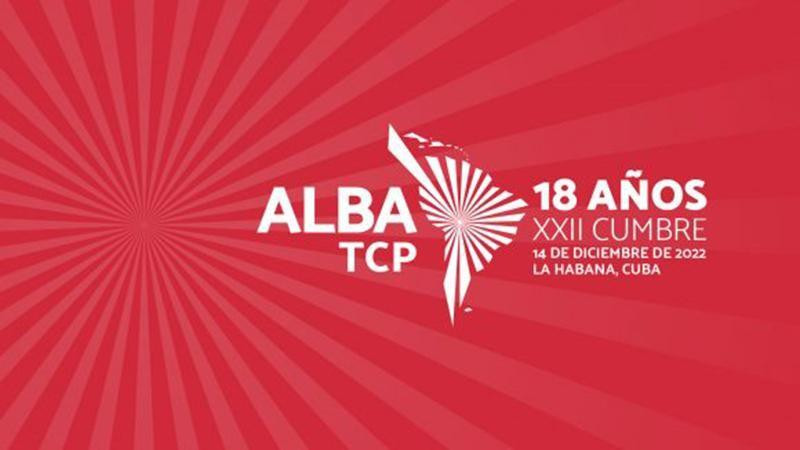The summit highlighted the important role of an integration mechanism based on the principles of solidarity, complementarity and cooperation, helping countries in the Latin American region overcome new challenges.
This year’s ALBA-TCP Summit featured the participation of Cuban President Miguel Diaz-Canel, Venezuelan President Nicolás Maduro, and many leaders and representatives from member countries. Member-state representatives in the bloc stressed the role of ALBA-TCP in the region.
Cuban President Miguel Diaz-Canel noted, that without an integration mechanism based on these principles of solidarity, complementarity and cooperation, Latin America will find it very difficult to face the “new forks” as it is now. Amid economic hardship, inflation and limited access to financial resources, progressive forces are advancing in the region as a result of social struggles.
However, the Cuban leader also made it clear that a major challenge for the bloc, is that imperialism has constantly harassed and promoted politically motivated legal processes. Political forces have been constantly manipulating reality and looking for ways to prevent the victory of the leftist forces.
Established on December 14, 2004, with the role and influence of Cuban leader Fidel Castro and Venezuelan President Hugo Chavez, the organisation was originally called the Bolivarian Alliance for the Peoples of Our America before it was changed to ALBA-TCP in 2006.
Experiencing many ups and downs, ALBA-TCP now has ten official members including Cuba, Venezuela, Bolivia, Nicaragua, Dominica, Antigua & Barbuda, San Vicente & Granadinas, Granada, San Cristobal & Nieves and Santa Lucia, along with three observers including Syria, Haiti and Surinam. ALBA-TCP is an integration mechanism in the spirit of solidarity and mutual assistance among Latin American countries. It has been considered an alternative to the Free Trade Area of the Americas (FTAA), which was proposed by the US but did not receive support from other countries in the region.
One of the focuses and objectives of this summit was to reaffirm the important role of ALBA-TCP in promoting regional integration. Currently, Latin America is seriously affected by global crises and member countries strive to achieve the economic and trade targets set by the ALBA-TCP by 2023, as well as boost cooperation in the areas of strategic importance in the face of a series of challenges such as food security, poverty reduction and economic development.
According to a joint report by the Economic Commission for Latin America and the Caribbean (CEPAL), the Food and Agriculture Organisation of the United Nations (FAO) and the World Food Programme (WFP), food insecurity in Latin America has grown by 60% in the last 7 years, affecting 40.6% of the population in the region and 29.3% of the world population.
The international economic crisis and conflict in Ukraine caused food prices to rise sharply, imposing a negative impact on the agricultural production chain in Latin America, while most countries in the region were net importers of many basic products.
A series of external shocks such as slowing economic growth, weak job market recovery and rising inflation have further aggravated poverty in Latin America, hindering the economic recovery of the whole region.
The Organisation for Economic Co-operation and Development (OECD) has recently lowered its GDP growth forecast in most economies in Latin America for 2023 and warned that the countries in the region would lose growth momentum over the next two years due to tighter global financial conditions. In its economic outlook report, the OECD estimated Latin America's economic growth in 2023 at only 0.5%-2.6%, down sharply from the average growth of 3.8% expected for the year 2022.
Amid a series of common difficulties, the ALBA-TCP has called for a change in relations in the Americas based on the United Nations Charter and international law, using multilateralism as a key tool to jointly tackle global challenges.
Playing a role of connecting the peoples of the Americas, ALBA-TCP continues to insist on maintaining peace, cooperation and development, through strengthening regional solidarity and integration.
















